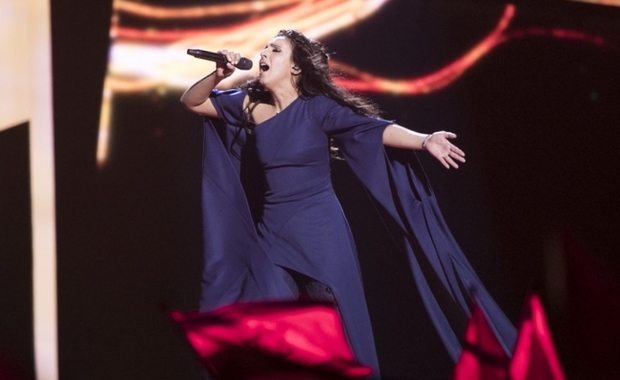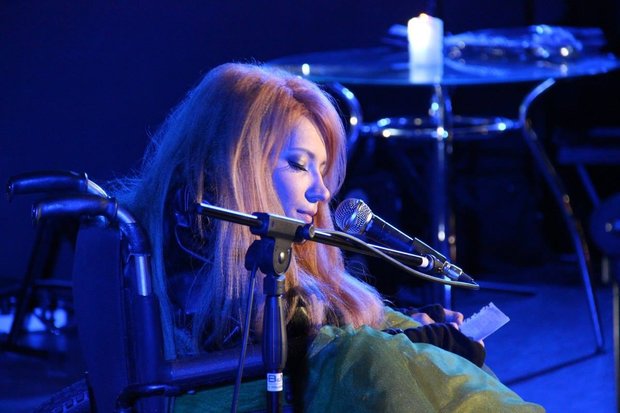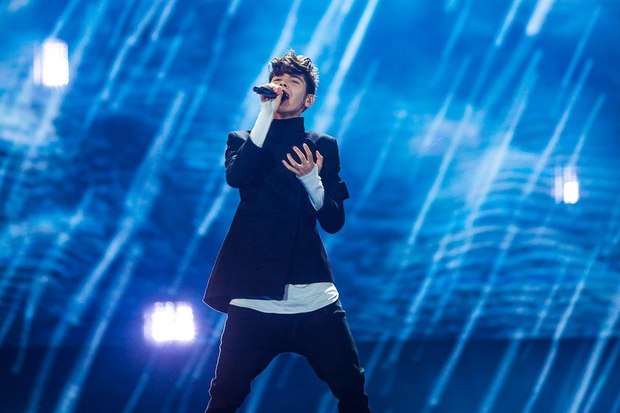''Eurovision without Russia was faint, and the organizers earned less''
Crimean political expert about the results of Eurovision 2017
The final of the musical contest Eurovision 2017 took place last weekend. Perhaps, it has become the most scandalous in the history of the contest. Controversy aroused not so much around the winners as around the non-participation of Russia in the contest held in Kiev. Crimean political expert Ivan Mezukho in the newspaper column written for Realnoe Vremya says that Moscow in this situation did the right thing, not agreeing to the deal with the organizers.
Politicized music
The final of the international song contest Eurovision was held on 13 May, it is organized by the European Broadcasting Union (EBU). Since last year the winner of Eurovision in Stockholm was the Ukrainian singer of Crimean Tatar origin Susana Dzhamaladinova, better known under the pseudonym of Jamala, the song contest is held in Kiev this year.
The political song 1944 about criminal deportation of the Crimean Tatars, due to which Jamala won the Eurovision 2016, was supposed to be a just cause for disqualification of the singer, but the organizers once again swallowed the Ukrainian ''political pill'' at the supposedly non-political contest. Kiev then stated that the Jamala's song was not political but historical. However, it remains unclear how it is possible to sing about the terrible events of the deportation of the whole people at the entertainment contest where the audience simply cannot understand the depth of the tragedy of the forced deportation of the Crimean Tatars in 1944.

''Kiev then stated that the Jamala's song was not political but historical. However, it remains unclear how it is possible to sing about the terrible events of the deportation of the whole people at the entertainment contest.'' Photo: eurovision.tv
For the first time Eurovision was held in Kiev in 2005. That time Ukraine was represented by the group GreenJolly with their only hit song Razom nas bahato, nas ne podolaty. This song became the anthem of the Ukrainian Orange Revolution in 2004. On the central square of Kiev from all the speakers there were heard the blunt words of the chorus of this agitation: ''Yushchenko — Yes! Yushchenko — Yes! This is our President! Yes! Yes!'' I must admit that at the Eurovision, GreenJolly performed a modified version of the song without mentioning the name of the third Ukrainian President. Nevertheless, the politicization of this musical composition was obvious, and the organizers of Eurovision shamefully swallowed the Maidan agitation.
Anti-Russian hysteria
When it became known that the Eurovision 2017 would be held in Ukraine, it immediately became clear that Kiev would organize all kinds of obstacles to a representative of Russia in this contest. One must have courage to represent the honour of Russia in the country where at the state level the anti-Russian and Russophobic rhetoric are encouraged. For a Russian openly declaring that Crimea is the territory of Russia, it is simply unsafe to be in Ukraine. The Russian representative at Eurovision 2017 Yuliya Samoylova has been banned to enter the country for a period of 3 years by the security forces of Ukraine. The contrived reason for this decision of SBU was the performance of the singer in June 2015 at the gala concert of the festival ''The World of sports and the good'' in Crimea, which Kiev authorities still consider to be their territory.
By banning Samoylova to perform at the contest in Kiev, the Ukrainian security services have demonstrated fear of the talented girl in a wheelchair. Kiev was afraid of the potential winning of the Russian singer in the contest because it once again would destroy the myth of the ''savagery'' of Moscow.

''By banning Samoylova to perform at the contest in Kiev, the Ukrainian security services have demonstrated fear of the talented girl in a wheelchair.'' Photo: facebook.com
Russia has acted wisely by not agreeing to make a live stream of the singer's performance from Moscow. The refusal of our country to broadcast Eurovision this year is the best punishment for the organizers of the song contest, not able to pacify the anti-Russian fervour of Ukraine. Without Russia Eurovision was faint, and the organizers earned less. The punishment by ruble of the organizers of Eurovision is the only thing that Moscow could make in such circumstances.
Juliya Samoylova is worthy of all praise for having bravely endured this absurd ban, accepted the invitation of the authorities of Sevastopol and performed in the hero-city on 9 May, when the first semi-final of Eurovision 2017 started. She stated her civic position. Many of our artists should have done the same thing and visit Crimea. Sooner or later, the situation in which Russian singers earn money both in Ukraine and Russia will end because one can always ask: ''To whom Crimea belongs?'' and it will be impossible not to answer. The time will come, and every public person will have to determine the answer to the question of territorial belonging of the Crimean Peninsula.
Double standards
The selectivity of ''punishment'' by Ukrainian security forces for singers for visiting Crimea was clearly demonstrated by them during the Eurovision 2017. The representative of Bulgaria Kristian Kostov, who took the second place in the finals, losing the championship to the Portuguese Salvador Sobral, for performance in Russian Crimea in the summer of 2014 did not receive the prohibition of the SBU to enter the country and was not even declared an ''agent of the Kremlin'' as it often happens in Ukraine in such cases.
The official comment of the security service that Kristian Kostov performed in Crimea even before the ban to enter the Peninsula had been introduced looks nothing like the way to excuse anti-Russian policy of the Ukrainian authorities. So, the question why Juliya Samoylova was not allowed to Ukraine and Kristian Kostov was remains open.

''The question why Juliya Samoylova was not allowed to Ukraine and Kristian Kostov was remains open.'' Photo: vk.com
And sanctions again
A few days before the contest in mass media there appeared the information about a possible attempt to introduce sanctions by the European Broadcasting Union against Ukraine and Russia for violations of the rules of Eurovision. Kiev was accused of failing to fulfill its commitments for ensuring the performances of all participants. Moscow was accused of the absence of the Russian delegation at mandatory meetings at the beginning of the year.
Of course, in the EBU realizes that Russia is not to blame. Nevertheless, by stating about the possible introduction of sanctions against Ukraine and Russia, the organizers of Eurovision are just trying to soften the punishment for Kiev. On this basis, we cannot hope for a fair punishment for Ukraine from the EBU for preventing Russian singer to participate in the contest. Too strong is the informational anti-Russian propaganda in Europe. Eurovision musical contest has turned into a platform for political outrage.